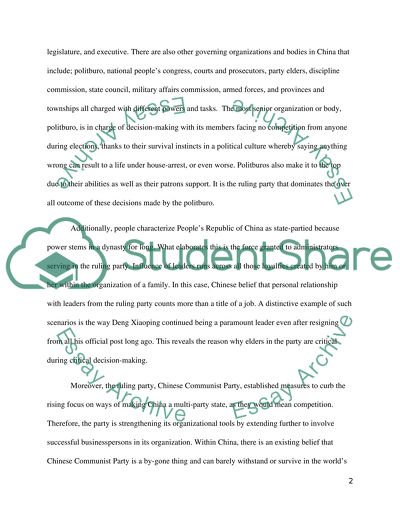Cite this document
(“Why is China characterised as a 'Party-State' Essay”, n.d.)
Why is China characterised as a 'Party-State' Essay. Retrieved from https://studentshare.org/history/1443625-why-is-china-characterised-as-a-party-state-
Why is China characterised as a 'Party-State' Essay. Retrieved from https://studentshare.org/history/1443625-why-is-china-characterised-as-a-party-state-
(Why Is China Characterised As a 'Party-State' Essay)
Why Is China Characterised As a 'Party-State' Essay. https://studentshare.org/history/1443625-why-is-china-characterised-as-a-party-state-.
Why Is China Characterised As a 'Party-State' Essay. https://studentshare.org/history/1443625-why-is-china-characterised-as-a-party-state-.
“Why Is China Characterised As a 'Party-State' Essay”, n.d. https://studentshare.org/history/1443625-why-is-china-characterised-as-a-party-state-.


